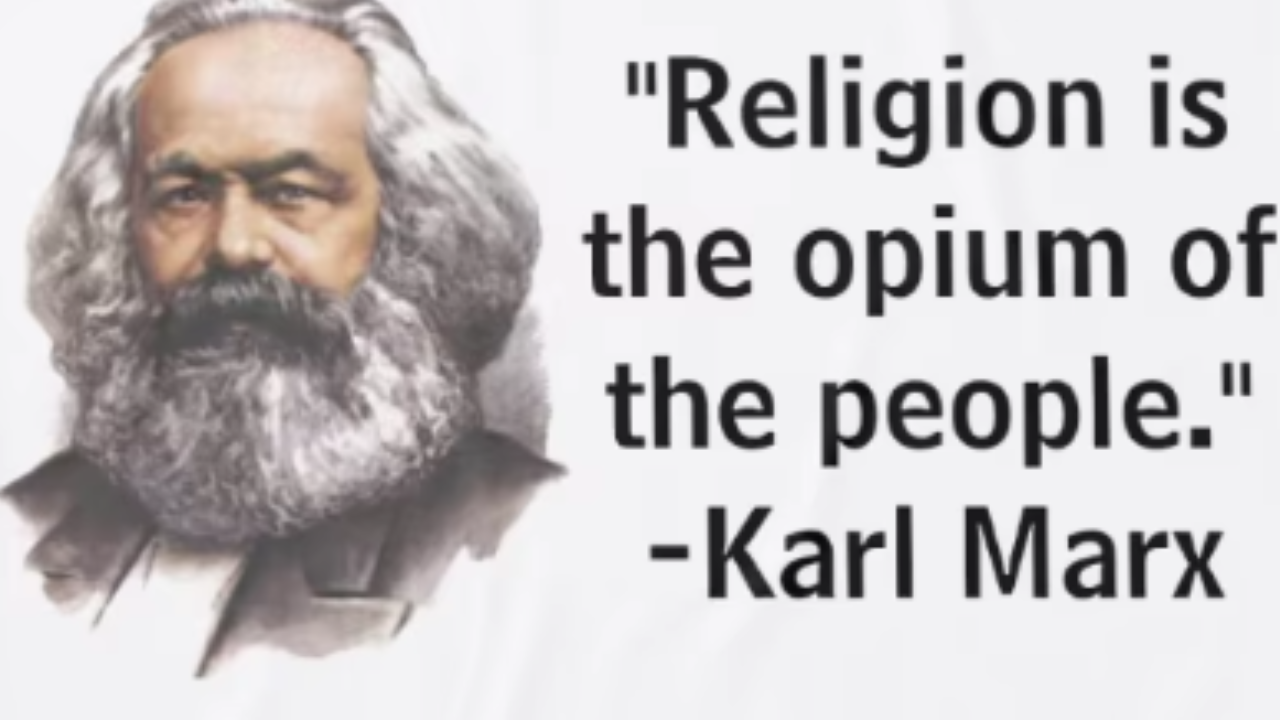Currently Empty: $0.00

Development Revisited: A Sociological and Managerial Analysis Part 2
“Religion is the opium of the people”—Karl Marx
In the first part in this series, I discussed the political institution of society, and briefly examined democracy as promoted by the West to see whether this institution has lived up to expectation in development. In this article, our attention is on another institution of society, religion.
The Religious Institution
Religion is very important in any society. As we grow, we seek to find out why we are here and where we are going. Also why do things happen the way they do and how did this awesome universe and all that fills it come to be. To find the answers society generally tells us that there’s a God who made all things. And that God should be worshiped. Depending on where we are raised and the religion our parents belong to, we adopt a certain belief system and certain practices.
Religion, since it claims to lead to God and teaches that God is loving, should normally lead society to a state of inner peace for individuals, and peace and love among people. But has that been the case?
In traditional democracy as practiced by indigenous Africans, the priesthood is very crucial in guiding the king in his decisions and way of ruling. Similarly, in Western democracy, political leadership has often looked up to religious heads for guidance and blessings in their vocation. Yet, in all this, has religion really lived up to expectation by helping society to develop? Let’s see.
Religion and War
Should religion support war? Some say ‘yes’. And they have justification for it. As I stated in the first part in this series, the quest for power under the guise of making life easier for peoples has often led to bloody results by nations seeking to dominate others. Usually, throughout human history, religion has supported those wars of selfishness.

In a fashion amenable to what Karl Marx said and as quoted above, when religion gets involved in warfare, fervuor is whipped. We hear statements like “Go and defend your nation in the name of God”. “Capture those savages and turn them over to God” and so forth.
Thus, with the blessing of their religious heads, heads of states and their armies often with the support of the citizenry get to war to either offend, defend or avenge. What has been the result?
No matter who wins the war, both sides tend to be losers. Lives are lost, farmlands and other properties are destroyed, and enmities are deepened. Sometimes there are disease outbreaks and famine. These results, coupled with others take the development of such nations several years backwards. With religion at the helm of affairs can we say that it has been a force for good in development?
Apart from wars that are egged on by religious fervour, there are also those that are directly religious in nature. Mention the Crusades for example that involved wars between Christians and Muslims. Even within countries, religions clash with each other with bloody results as is happening in Northern Nigeria, the Middle East and as did happen in Ireland. Do these wars help development? No wonder many have concluded wrongly that God is cruel since all of this happens in his name.
Religion and Oppression
The role of religion, specifically Christianity in colonization has been nothing but villainy. Appearing to be doves, these missionaries succeeded in aiding the political powers of their lands to suppress and oppress peoples, treating them like animals. They also used the Holy Bible to justify the slave trade, concluding that Blacks were an accursed race.
So, would you call it development when religion helped colonial powers and slave merchants to recruit cheap labour to develop their nations amidst murder, rape, torture and other barbaric acts? Is that true development? But what about religious values?
The Protestant Work Ethic
Max Weber’s seminal work, “The Protestant Ethic and the Spirit of Capitalism,” introduces the concept of the Protestant Work Ethic. This ethic posits that the rigorous Protestant view of work significantly contributed to the development of several nations, including Scandinavian countries, the Netherlands, Germany, Switzerland, the United Kingdom, Canada, and the United States.
At its core, the Protestant Work Ethic emphasizes hard work as an essential aspect of one’s calling and worldly success. This emphasis, rooted in Calvinist theology, views hard work not as a means to achieve salvation but as a visible manifestation of already-received salvation.
Martin Luther’s reforms played a pivotal role in shaping this ethic. Luther reconceptualized worldly work as a duty that benefits both individuals and society, transforming the Catholic notion of good works into an obligation to work diligently as a sign of divine grace.
In contrast to Catholicism, which considers good works necessary for salvation, Protestant reformers taught that good works are a consequence of salvation already received through faith in Jesus. Calvinist and Lutheran theologians further emphasized that salvation is granted solely by grace, through faith, and to those predestined.
Since predestination was considered unknowable, Protestants sought signs of election in their daily lives. Hard work and frugality emerged as key indicators of being among the elect. As a result, Protestants embraced these values, striving to be obedient to God and demonstrate their gratitude for salvation.
The Protestant Work Ethic has profoundly influenced the cultural and economic landscape of Protestant countries, fostering a strong work ethic and contributing to their “development”.
Let’s grant that this work ethic helped develop the respective countries of its adherents. Yet, as noted earlier, these same religious people engineered, participated in and supported colonization and the slave trade. Besides, what has been the result of this work ethic? Materialism and consumerism!
In today’s world, many people still hold that material prosperity is a gift from God. As a result, many people do all sorts of things to give that outward appearance that they have been blessed by God; that they are good worshippers. Yet, it is this same pattern of life that has led to the gradual destruction of planet earth! Apart from that, driven towards material success, people have become stressed-out and are dying younger. Is this true development?
What Is Your Conclusion?
Many influential people still view religion as very important in developmental issues. For example, in an interview with Kim Lawton for pbs.org, James Wolfensohn, former President of the World Bank was asked about his efforts at roping in religious leaders in the fight against poverty. The following is an extract from his response:
“Once we got them talking, as you know better than I they don’t always share secrets with one another about what they’re doing because in a sense there is a competitive element amongst religious leaders. But when you get to the question of humanity and the question of poverty, I found that the competitive element disappeared and we were able to talk about these fundamental humanitarian issues on a very even basis, and it was one of the great experiences of my life chairing those meetings.
“The most broadly based access to the developing world is through religious people. There are more of them out there. They’ve been there longer. They know the countries. They’re installed locally. They don’t all sit in a big office in the headquarters. They’re out in the field. And so, it is a tragedy if they are not embraced, in my opinion, in the overall development process. “It is not as though Islam, Judaism, or Christianity are monolithic. They’re not. And so, I think you can, at the fringes, and at the margins and on particular issues, you can get help from the religious community. But I don’t think it is very easy to get them to come up with the solution for you.”
Given the checkered and largely uncomplimentary historical impact of religion on development, what do you conclude: Is religion a force for good in economic development? Let’s get talking.
The author Jules Nartey-Tokoli is Founder and Group CEO at Groupe Soleil Vision, comprising Soleil Consults, LLC, NubianBiz dot Com and Soleil Publications. He has lived and worked in both Ghana and the United States, having extensive experience in Strategy, Management, Entrepreneurship, Premium Audit Advisory and Web consulting. He has also published several articles on Strategy and Management among others.
Discover more from NubianBiz.Com, Africa Business Directory & Portal for intra-Africa Trade, Jobs, networking and education
Subscribe to get the latest posts sent to your email.







